SpEd teaching requires a deep understanding of various learning strategies, teaching methodologies, and insights into the needs of special needs students.
As a special education teacher, you need to continuously expand your knowledge and skills.
Whether you're looking for practical strategies for special education classrooms, legal guidance, or a deeper understanding of specific disabilities, there are plenty of authoritative resources available to help you on this journey.
Here are the 20 best books that every special education teacher should read.
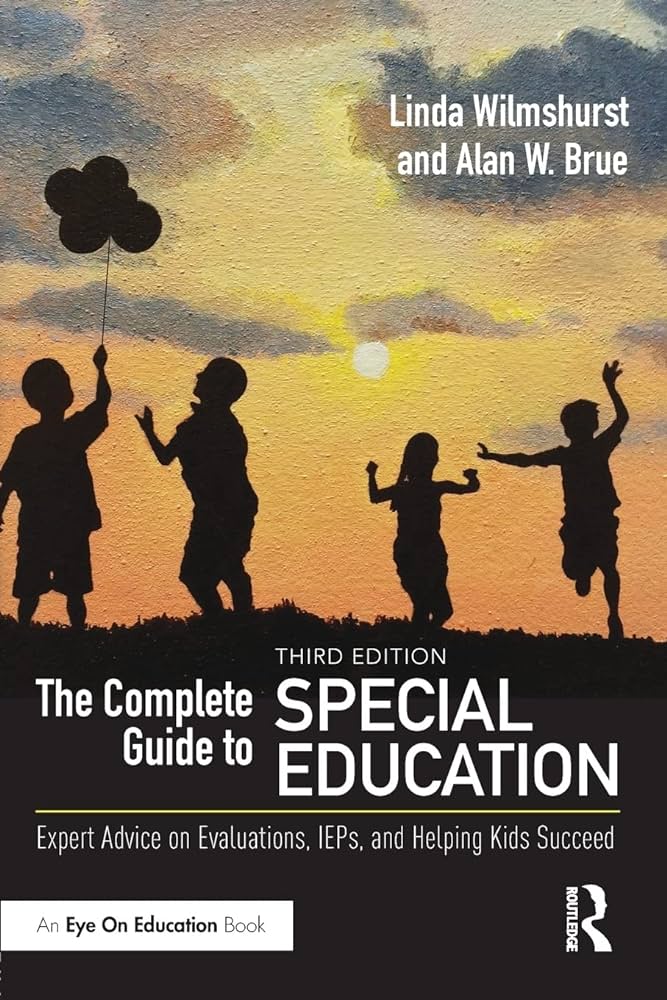
1. "The Complete Guide to Special Education" by Linda Wilmshurst and Alan W. Brue
A comprehensive resource, this book covers the entire spectrum of special education, from understanding legal requirements (incl. special education laws) implementing effective teaching strategies. It's a must-have for both novice and experienced educators alike.
Offering accessible, practical insights into the complexities of special education, this reference guide includes -
- Easy-to-understand explanations of assessments.
- Strategies for parent-teacher collaboration.
- Real-world case studies.
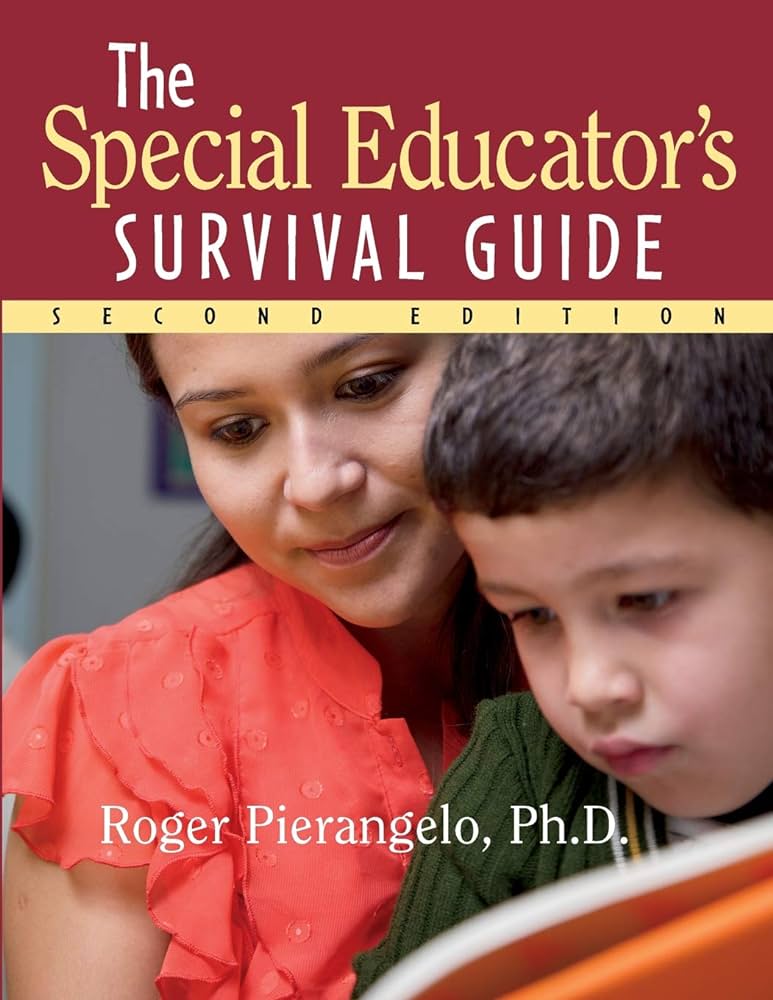
2. "The Special Educator's Survival Guide" by Roger Pierangelo
Packed with practical tips, tools, and techniques, this book can help you manage the everyday challenges of special education.
A beginner’s reference book for special education teachers, it offers practical advice on various aspects, including the referral process, parent conferences, evaluations, IEPs, classroom management, and special education laws.
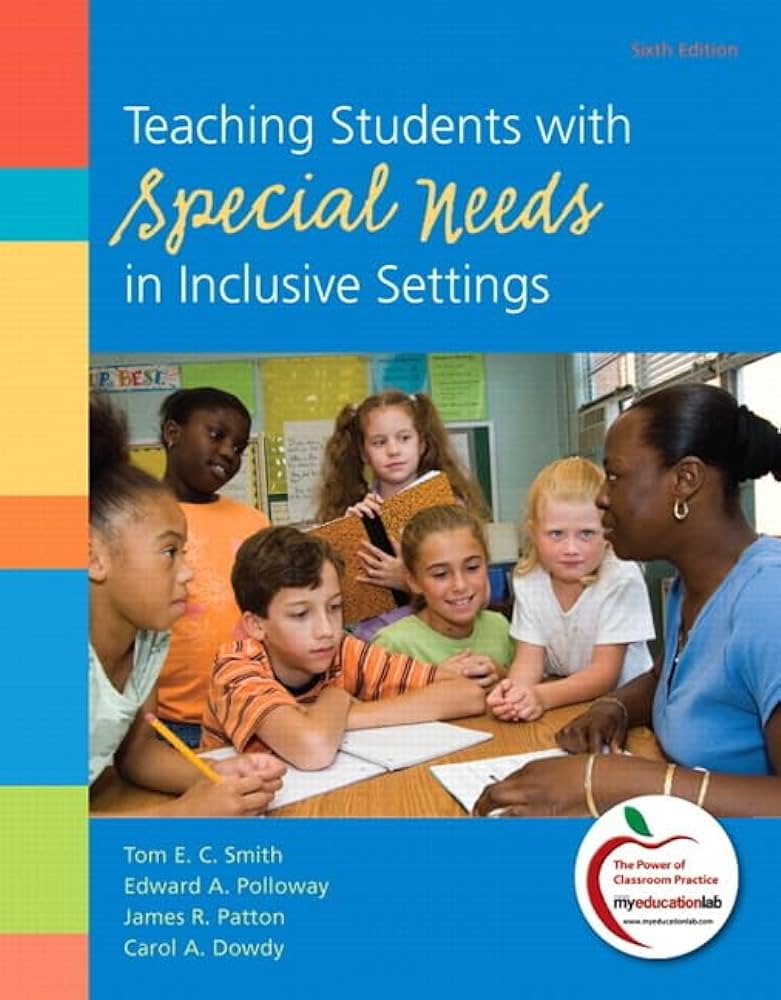
3. "Teaching Students with Special Needs in Inclusive Settings" by Tom E.C. Smith, Edward A. Polloway, James R. Patton, and Carol A. Dowdy
This book focuses on inclusive education. It offers strategies to support students with special needs in mainstream classrooms. It emphasizes collaboration and adapting teaching methods to meet diverse needs.
The authors discuss evidence-based strategies that can support diverse learners and encourage collaboration between general and special education teachers. This special ed book also sheds light on essential topics such as instructional adaptations, behavior management, and assessment practices.
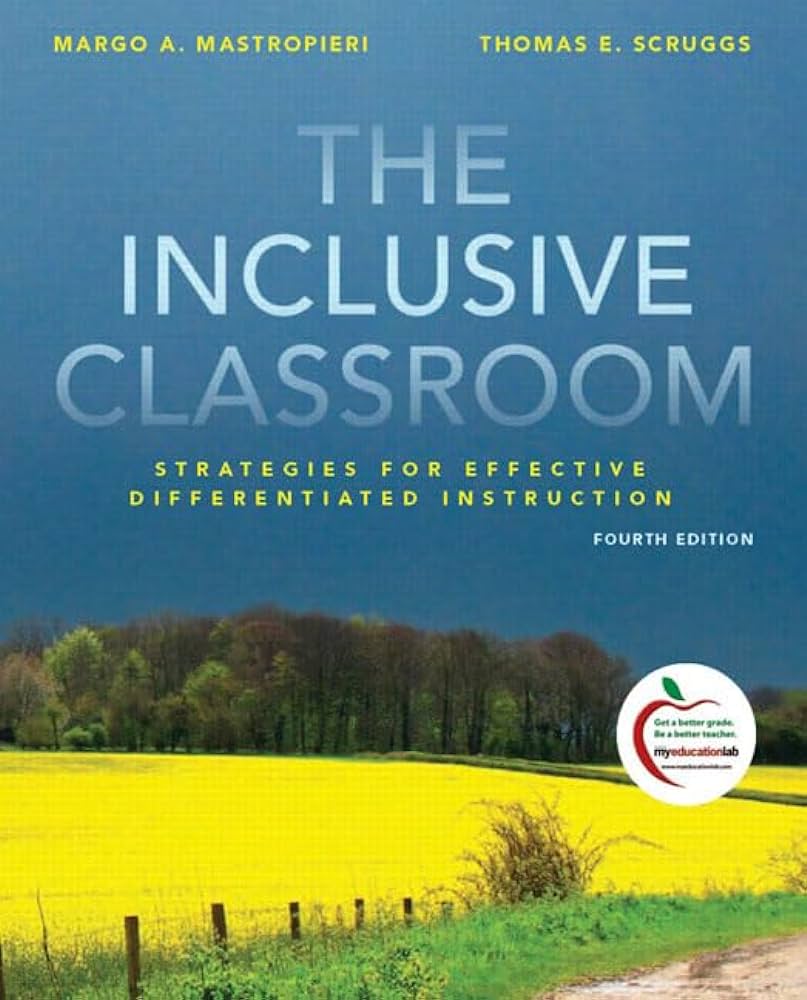
4. "Inclusive Classroom: Strategies for Effective Differentiated Instruction" by Margo A. Mastropieri and Thomas E. Scruggs
This book provides insights and practical strategies for creating an inclusive classroom environment that caters to students with diverse needs. The book covers differentiated instruction in detail.
This special education book covers (in detail) targeted teaching methods to enhance students' memory, attention, motivation, study skills, and peer interactions.
Other important topics covered by this reference guide are: :
- Classroom-ready tips and checklists.
- Covering topics such as Response to Intervention (RTI).
- Multi-Tiered Systems of Support (MTSS).
- Common Core State Standards (CCSS).
- Universal Design for Learning (UDL).
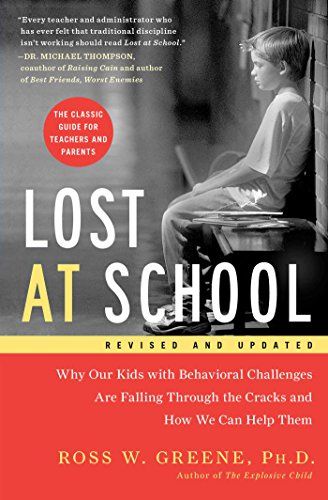
5. "Lost at School: Why Our Kids with Behavioral Challenges are Falling Through the Cracks and How We Can Help Them" by Ross W. Greene
Greene's book sheds light on a collaborative problem-solving approach to address challenging behaviors in special education classrooms. It promotes empathy and proactive strategies over punitive measures.
Greene argues that challenging behaviors often stem from lagging skills and unsolved problems; the author encourages collaborative engagement between educators and students to address these issues.
A handy resource on challenging behaviors, this book on special education provides practical tools and real-life examples to help teachers implement CPS(Child Protective Services) and establish learning environments that foster positive behavioral change.
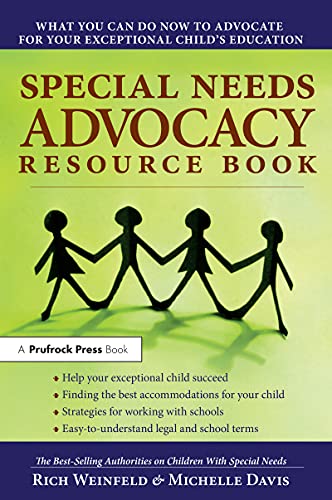
6. "Special Needs Advocacy Resource Book: What You Can Do Now to Advocate for Your Exceptional Child's Education" by Rich Weinfeld and Michelle Davis
This resource book offers additional strategies and tools for advocating for children with special needs. This guide can help special education teachers ensure students receive tailored services and support.
Rich Weinfeld and Michelle Davis in this special education book offer clear explanations of legal terms, school regulations, and practical tools such as checklists, tips, and questionnaires to facilitate effective advocacy.
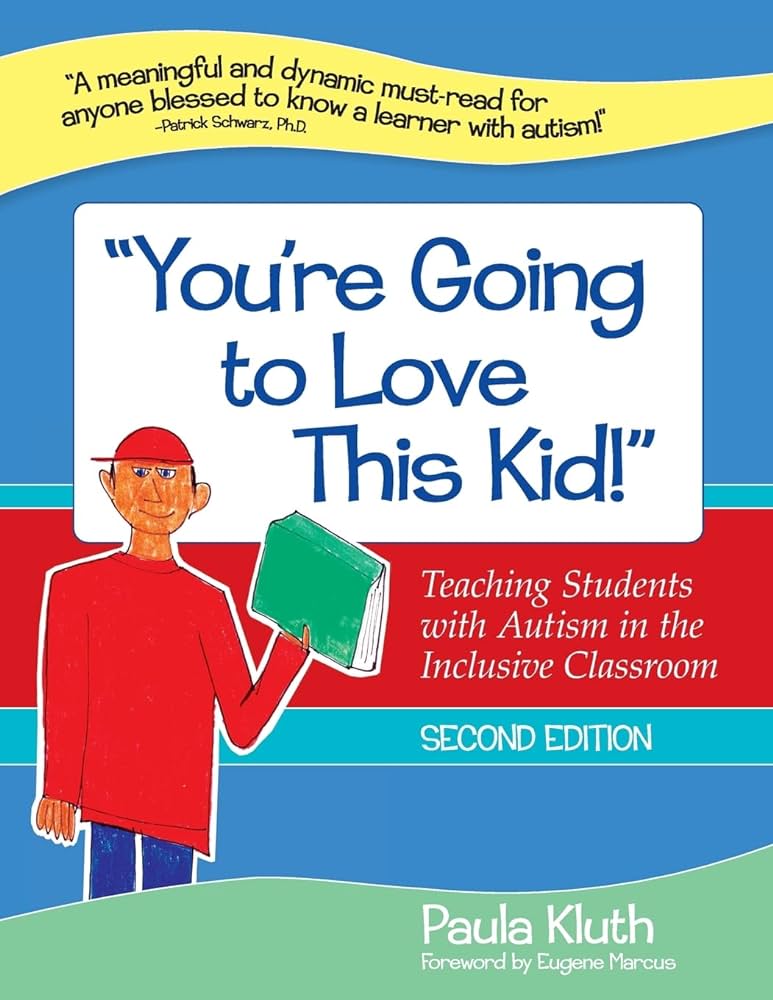
7. "You're Going to Love This Kid!: Teaching Students with Autism in the Inclusive Classroom" by Paula Kluth
Kluth offers practical advice for teaching students with autism in inclusive settings. The book highlights the importance of understanding individual needs and fostering a supportive classroom environment.
From her extensive experience, Kluth emphasizes understanding each student's unique strengths and challenges and advocates for individualized instruction and classroom management approaches.
Readers will also find actionable insights on fostering a supportive and inclusive environment and promoting collaboration among educators, students, and families to enhance learning outcomes for all.
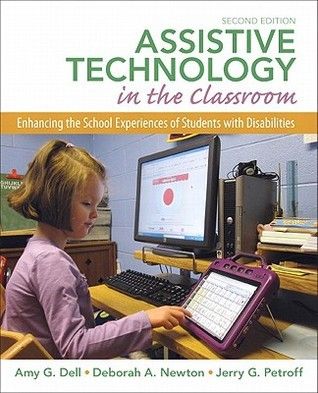
8. "Assistive Technology in the Classroom: Enhancing the School Experiences of Students with Disabilities" by Amy G. Dell, Deborah A. Newton, and Jerry G. Petroff
This book covers the use of assistive technology (AT) to support students with disabilities. It provides detailed guidelines for AT implementation with practical examples.
Authors emphasize the importance of individualized approaches so that AT solutions are tailored to meet the unique needs of each student.
The book can help special education teachers learn how they can enhance learning experiences and promote greater independence among differently-abled students.
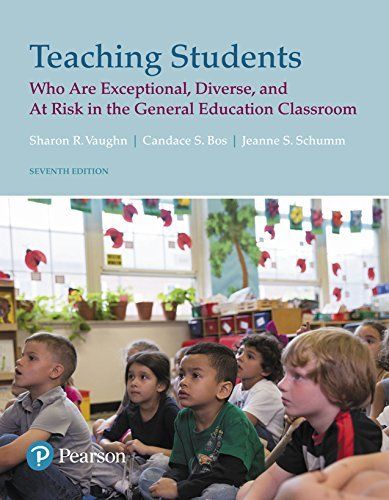
9. "Teaching Exceptional, Diverse, and At-Risk Students in the General Education Classroom" by Sharon Vaughn, Jeanne Shay Schumm, and Candace S. Bos
This book offers strategies for teaching a diverse range of students, including those with special needs, in general education settings. It focuses on inclusive education.
The authors emphasize the importance of differentiating instruction to meet the unique needs of students with disabilities, those from various cultural backgrounds, and at-risk learners.
This reference book offers evidence-based practices, real-world examples, and tools to encourage an inclusive classroom environment that promotes academic success for all students.
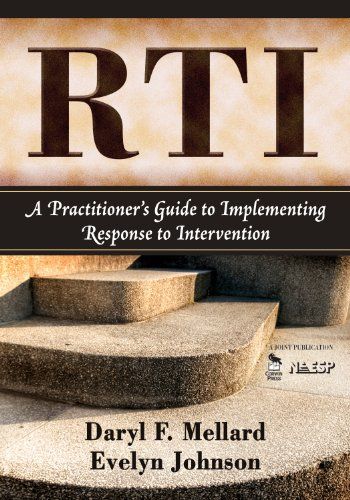
10. "RTI: A Practitioner's Guide to Implementing Response to Intervention" by Daryl F. Mellard and Evelyn Johnson
Response to Intervention (RTI) is an important framework in special education. This guide helps educators understand and implement RTI effectively to support student learning and progress.
The authors provide detailed insights into the three tiers of RTI: schoolwide screening, progress monitoring, and the necessary adjustments in school structures and staff roles to support student learning and progress.
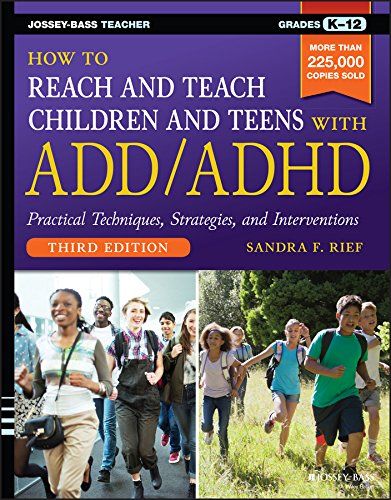
11. "How to Reach and Teach Children with ADD/ADHD" by Sandra F. Rief
Rief provides practical strategies for teaching students with ADD/ADHD. The book emphasizes the importance of organization, structure, and positive reinforcement to enhance learning and behavior.
"How to Reach and Teach Children with ADD/ADHD" provides a wealth of tools, including real-life case studies, intervention plans, and best teaching practices. It is an invaluable guide for those keen to understand how to help f children with ADD/ADHD achieve academic and social success.
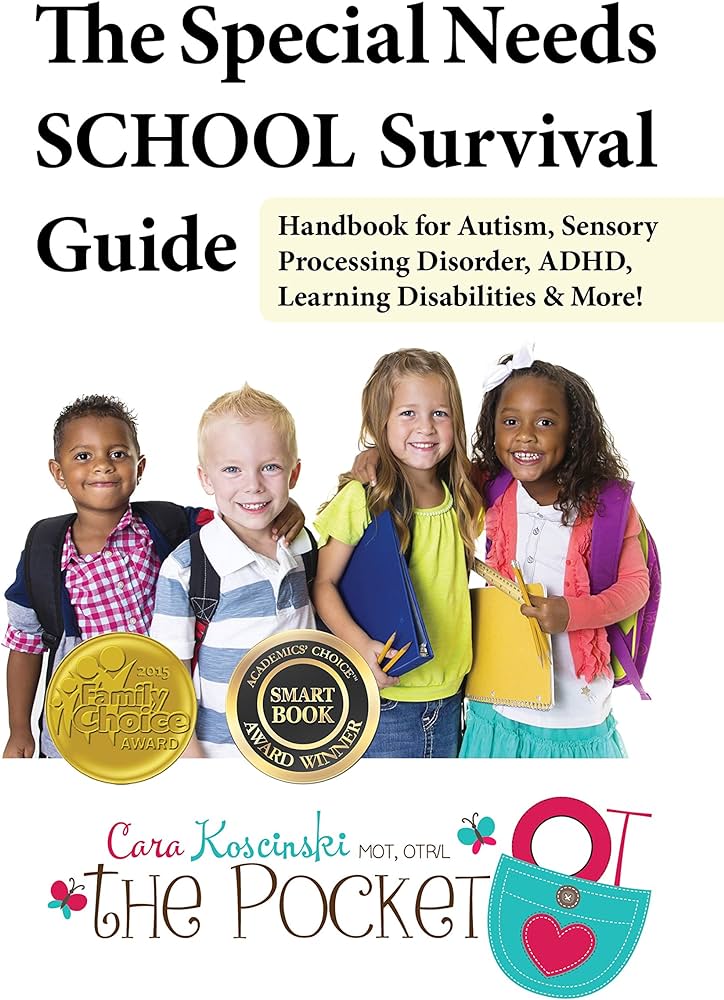
12. "The Special Needs School Survival Guide: Handbook for Autism, Sensory Processing Disorder, ADHD, Learning Disabilities, & More!" by Cara Koscinski
A comprehensive resource for educators, it offers insights and strategies for supporting students with a wide range of special needs.
Drawing from her experience as a pediatric occupational therapist and a parent of children with special needs, Koscinski provides practical strategies and activities that can be readily implemented in both classroom and home settings.
An in-depth book about special education, it covers IEPs, sensory accommodations, behavioral interventions, and fine motor skills development.
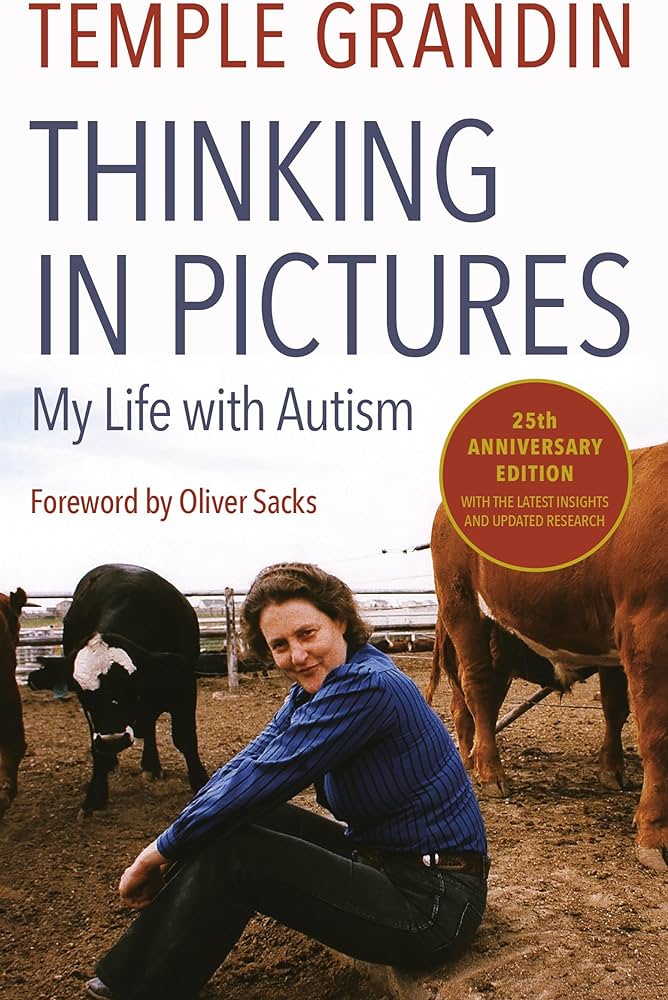
13. "Thinking in Pictures: My Life with Autism" by Temple Grandin
Temple Grandin, an author and advocate with autism, provides a personal account of her experiences in this book.
This book offers a unique perspective on autism; it sheds light on the thought processes and challenges faced by individuals on the spectrum.
She explores her journey of overcoming autism-related challenges and narrates how her unique cognitive processes have contributed to her professional achievements.
"Thinking in Pictures: My Life with Autism" provides valuable perspectives on sensory sensitivities, social interactions, and the development of coping mechanisms that significantly contribute to understanding autism from an insider's viewpoint.
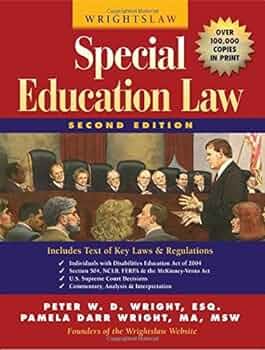
14. "Special Education Law" by Peter W.D. Wright and Pamela Darr Wright
This book provides a comprehensive overview of special education laws, including IDEA and Section 504, and how to comply with them in your classroom or school district.
The authors, experts in special education advocacy, offer clear explanations of legal requirements and practical guidance for compliance within educational settings.
This special education book is an invaluable tool for educators, administrators, and parents keen to get familiar with the complexities of special education law.
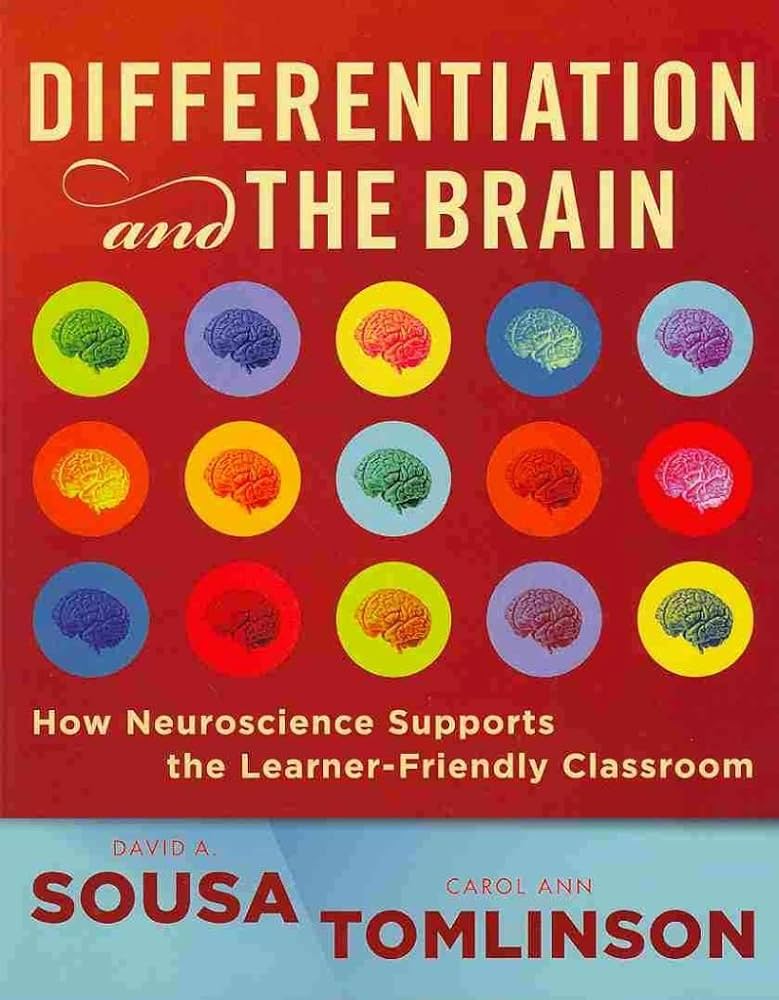
15. "Differentiation and the Brain: How Neuroscience Supports the Learner-Friendly Classroom" by David A. Sousa and Carol Ann Tomlinson
This book combines the latest information in neuroscience with practical strategies for differentiation. The book can help teachers understand how to create brain-friendly, inclusive classrooms that support all learners.
The authors discuss how understanding brain function can inform differentiated instruction and help educators create inclusive, learner-friendly environments.
The book also offers useful insights into tailoring teaching methods to accommodate diverse learning needs.
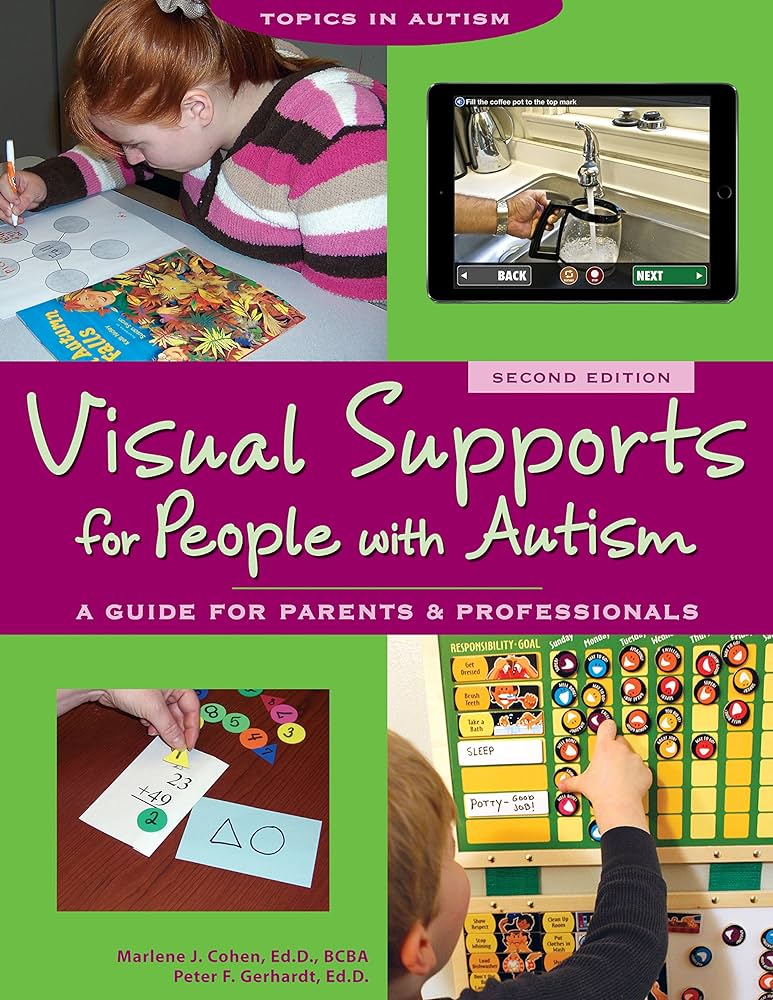
16. "Visual Supports for People with Autism: A Guide for Parents and Professionals" by Marlene J. Cohen and Peter F. Gerhardt
Visual support can be incredibly effective for individuals with autism. This guide offers practical advice on using visual aids to enhance communication and learning for students with autism.
There’s plenty of guidance on creating and implementing various visual supports, such as activity schedules, calendars, charts, and checklists, to improve academic performance, behavior, and self-help skills.
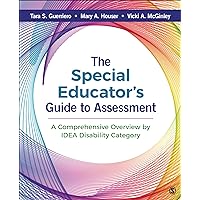
17. "The Special Education Teacher's Guide to Assessment" by Tara S. Guerriero, Mary A. Houser, and Victoria L. Bernhardt
Assessment is a critical component of special education. This book discusses various assessment tools and strategies to help teachers effectively monitor student progress.
Readers also benefit from a detailed examination of the role of assessment in diagnosing disabilities and determining eligibility for special education services.
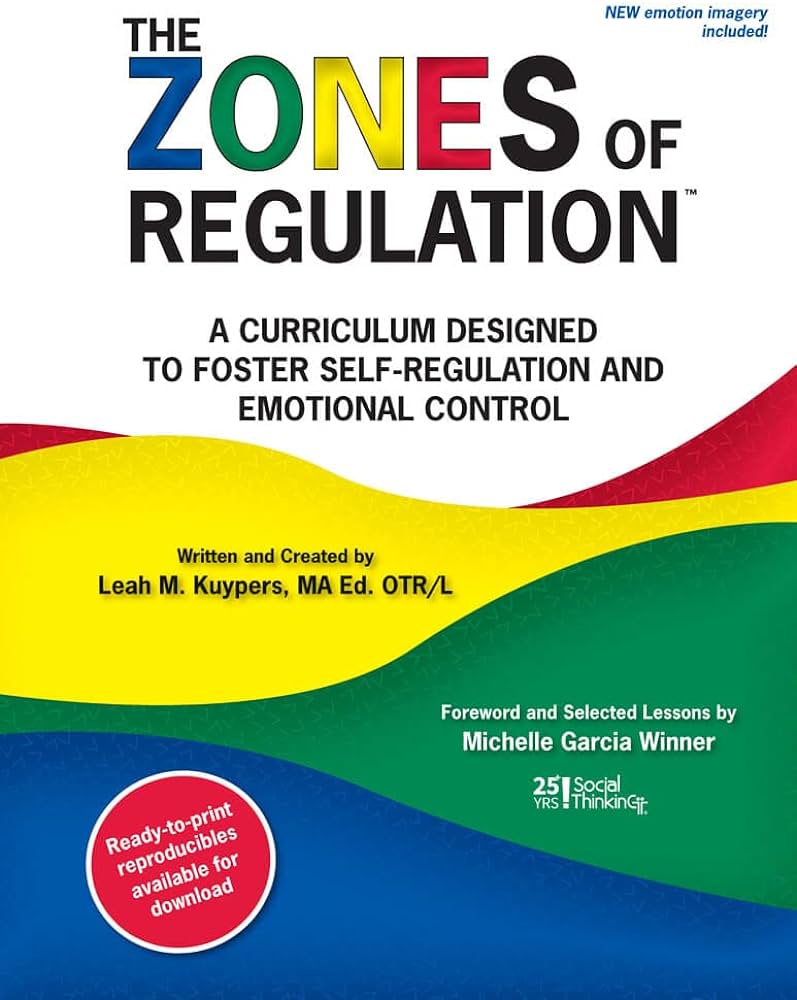
18. "The Zones of Regulation: A Curriculum Designed to Foster Self-Regulation and Emotional Control" by Leah M. Kuypers
This book discusses tools and activities to help students effectively comprehend and manage their emotions and behaviors. The techniques discussed in this book can help foster a deeper awareness and understanding of one’s unique needs.
The curriculum uses a color-coded system to help students recognize their feelings and choose effective strategies for self-regulation.
Students develop skills that improve their social interactions and academic success by engaging in activities that improve emotional awareness and apply cognitive behavioral techniques.
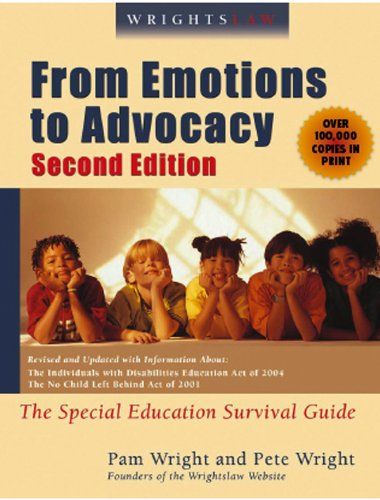
19. "From Emotions to Advocacy: The Special Education Survival Guide" by Pam Wright and Pete Wright
This book can help special education teachers and parents to advocate for special needs children.
Quick highlights of the content::
- Clear guidance on understanding special education laws.
- Developing Individualized Education Programs (IEPs).
- Navigating the complexities of the educational system.
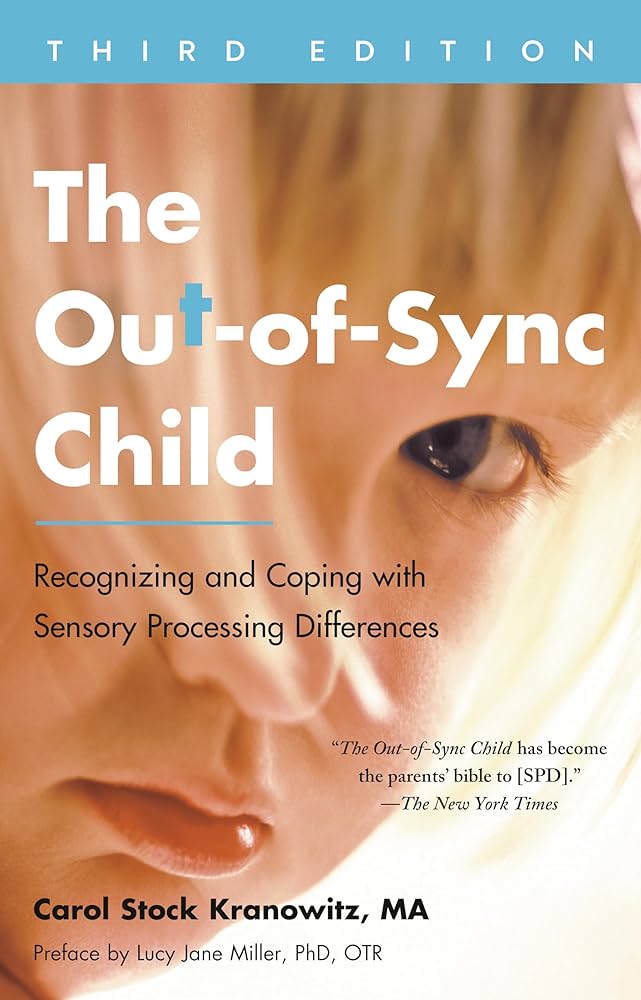
20. "The Out-of-Sync Child" by Carol Stock Kranowitz
It is a comprehensive guide to understanding and addressing challenges arising due to sensory processing disorder. The book offers practical strategies for helping children out of sync with their environment.
Having extensive experience as a preschool teacher, Carol Stock Kranowitz clearly explains SPD and its manifestations and provides practical strategies to help children struggling to process sensory information.
This book on special education is an invaluable resource for parents, educators, and therapists keen to learn about the tools that can help children achieve better sensory integration and improve their daily functioning.




